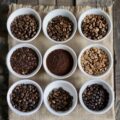The Art of Brewing a Smooth, Enjoyable Cup of Coffee
Coffee is more than just a morning ritual – it’s an experience that can set the tone for your entire day. The aroma, warmth, and flavor of a well-brewed cup can uplift your spirits and provide a moment of calm reflection. However, many coffee lovers struggle with bitterness in their brew, which can detract from this joyful experience. Let’s explore some compassionate ways to make your coffee less bitter and more enjoyable, focusing on the art of brewing as a form of self-care and mindfulness.
Understanding Bitterness in Coffee
Before we dive into solutions, it’s important to understand why coffee can taste bitter. Bitterness often results from over-extraction, where hot water pulls out too many compounds from the coffee grounds. This can happen due to various factors like water temperature, grind size, or brewing time. By approaching these elements with care and attention, we can create a more balanced and pleasant cup.
Mindful Selection of Coffee Beans
The journey to a less bitter cup begins with the beans you choose. Consider exploring different roasts and origins, paying attention to how each makes you feel. Lighter roasts often have less bitterness and more nuanced flavors. When selecting beans, think about supporting local roasters or fair trade options – this mindful choice can add an extra layer of satisfaction to your coffee experience.
- Experiment with light to medium roasts
- Try beans from different regions
- Consider ethically sourced or local options
Gentle Grinding for Better Flavor
The way you grind your coffee can significantly impact its taste. Grinding just before brewing preserves the beans’ essential oils and flavors. Approach the grinding process as a mindful activity – listen to the sound of the beans, inhale the aroma, and be present in the moment. A coarser grind can help reduce bitterness by slowing down extraction.
- Invest in a quality burr grinder for consistent results
- Grind coffee just before brewing
- Experiment with slightly coarser grinds to reduce bitterness
The Importance of Water Quality and Temperature
Water makes up the majority of your coffee, so its quality matters. Using filtered water can make a noticeable difference in taste. When it comes to temperature, boiling water can lead to over-extraction and bitterness. Instead, let the water cool for a minute after boiling. This gentler approach allows the coffee’s subtle flavors to shine through.
- Use filtered water for a cleaner taste
- Allow boiled water to cool for 30-60 seconds before brewing
- Aim for a water temperature between 195°F and 205°F (90°C to 96°C)
Brewing Methods for a Smoother Cup
Different brewing methods can significantly affect the taste of your coffee. Pour-over and French press methods allow for more control over the brewing process, enabling you to adjust variables to reduce bitterness. These methods can also become a soothing ritual, encouraging you to slow down and be present in the moment.
- Try a pour-over method for a cleaner, less bitter taste
- Experiment with French press brewing times to find your perfect balance
- Consider cold brew for a naturally smoother, less acidic coffee
Adding Complementary Flavors
If you find your coffee still has a bitter edge, consider adding complementary flavors that can balance the taste. A pinch of salt can surprisingly reduce bitterness without making the coffee salty. Cinnamon, vanilla, or a small amount of high-quality cocoa can add warmth and depth to your brew. Remember, the goal is to enhance your enjoyment, so feel free to experiment with flavors that bring you joy.
- Try a tiny pinch of salt in your grounds before brewing
- Experiment with natural flavor enhancers like cinnamon or vanilla
- Consider a splash of your favorite milk or non-dairy alternative
FAQ: Brewing Less Bitter Coffee
Q1: Why is my coffee always bitter?
A1: Bitterness often results from over-extraction. This can be due to water that’s too hot, coffee ground too finely, or brewing for too long. By adjusting these factors, you can reduce bitterness significantly.
Q2: Can the type of coffee maker affect bitterness?
A2: Yes, different brewing methods can impact taste. Pour-over and French press methods give you more control over the brewing process, potentially resulting in less bitter coffee.
Q3: Does adding milk reduce coffee bitterness?
A3: Milk can help balance the flavors in coffee and reduce perceived bitterness. The proteins and fats in milk can bind with bitter compounds, making the overall taste smoother.
Q4: How can I make my coffee less bitter without adding anything?
A4: Focus on your brewing process. Use slightly cooler water, a coarser grind, or reduce brewing time. Also, try lighter roasts which are naturally less bitter.
Q5: Is bitter coffee stronger or more caffeinated?
A5: Bitterness doesn’t necessarily indicate strength or higher caffeine content. In fact, lighter roasts, which are often less bitter, typically contain slightly more caffeine than darker, more bitter roasts.
Remember, brewing coffee is a personal journey. It’s about finding what brings you joy and comfort. As you experiment with these tips, approach each cup with curiosity and kindness towards yourself. The perfect cup of coffee is the one that makes you smile and helps you start your day with positivity and warmth. Enjoy the process of discovery, and savor each sip as a moment of self-care in your day.









